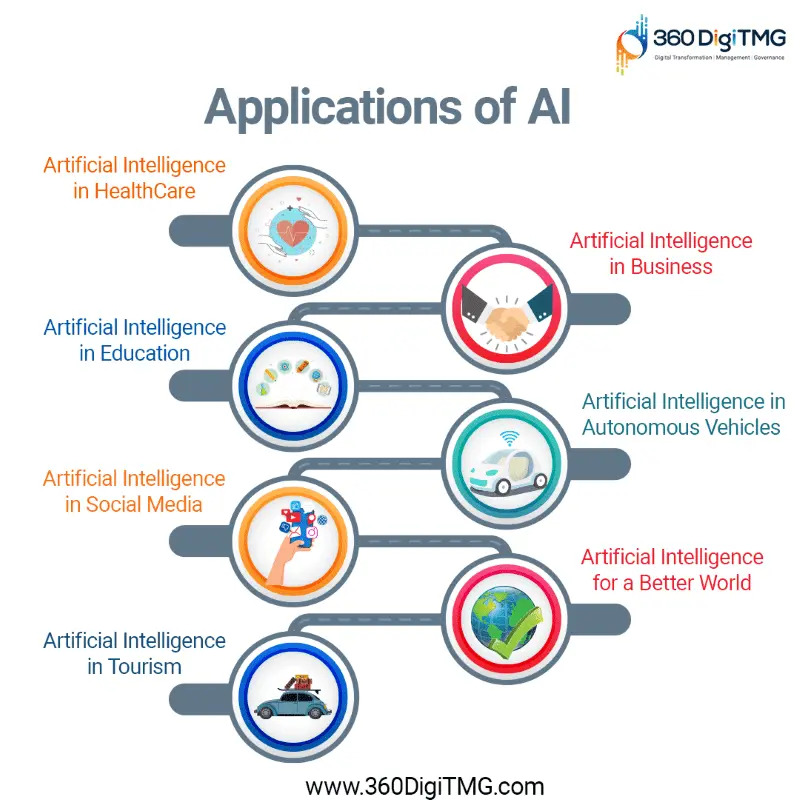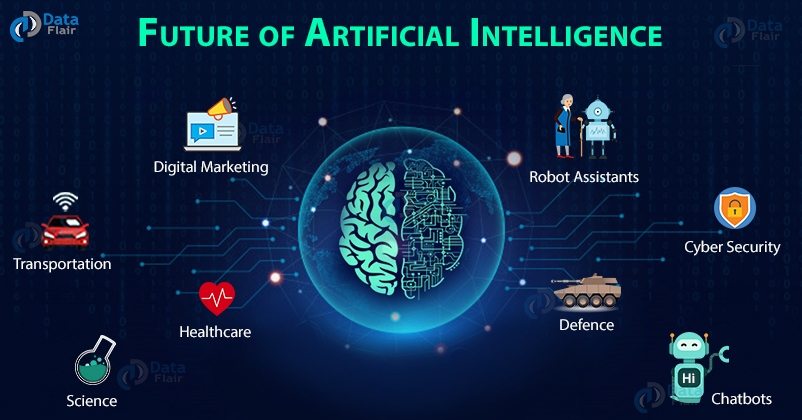
What is AI?
AI is a model and algorithm widely used in today's computer technology. AI's essence is that a model or algorithm trained on a set of data to solve a particular problem. AI is like a newborn baby, and it starts to acquire images and learn to classify. It can only detect the father, mother, or grandparents' faces and cannot do anything else. Currently, AI technology has three main directions: Image Processing (Computer Vision), Natural Language Processing (Natural Language Processing), Audio Signal Processing. Nowadays, there are many applications of AI in life. Such as:
- Face detection system through cameras mounted at airports and buildings
- Virtual assistants (like Siri, Google Assistant, Alexa) capable of listening, understanding, answering, and working for themselves
- Biomedical applications, using AI to diagnose diseases based on X-rays, X-rays, and MRI
- More familiar, there are smart TV series applying AI technology to improve picture quality or voice recognition
In summary, AI is artificial intelligence; this intelligence must be perfect. To build that intelligence, we must have Machine Learning. Inside Machine Learning, there are many ways and algorithms to learn; Deep Learning is the most outstanding.
Appliance of artificial intelligence technology
The prospect of AI surpassing human perception is still very far away, but for now, AI startups have reached a pretty high level of funding. In 2018, AI startups were supported up to 9.3 billion dollars in research and development, up to 72 percent more than AI funding in 2017 (Chapman, 2019). At the same time, tech giants like Google, Baidu, IBM, Microsoft, SAP, Intel are leading the AI market. The US holds the largest share of AI globally, and then Europe. According to experts, AI applications will be applied to many different industries and will grow stronger in the future. Artificial intelligence is coming into life strongly, replacing many manual jobs, consuming labor. AI makes our lives simpler and more efficient.
Thanks to AI, hospitals can manage electronic records, we have our healthcare assistant to suit our needs, make appointments easy, and always be supported 24/7. In traffic, intelligent transportation systems, autonomous cars - artificial intelligence products are also appearing more and more in life. In banks, financial institutions, AI is used to handle financial operations, investment money, stocks, and manage various assets. This technology can process transactions even better than people, help the bank better support customers, and provide quick solutions. With the AI applications in e-commerce, we can find the item we love fast, with the best price in no time. In production, the production lines use heavy industrial robots to help reduce heavy workloads, limit dangerous occupational accidents, and increase work productivity.

The primary development trend of AI in the future
Internet AI
Simply put, this is integrating AI into internet applications to change the way information is provided to people. A typical example of success is Google; the information on the internet is retrieved by Google and uses AI algorithms to analyze, classify, rank, and provide back to the internet users themselves through an interface. Search personalized search and provide essential information. Many other companies are also applying AI to their products, and almost no leading company can survive in the internet market without applying AI. These include Facebook, Amazon, Netflix, Uber in the US; Tencent, Baidu, Alibaba, and JD in China; Rakuten in Japan, Yandex in Russia.
Business AI
This is the trend of using artificial intelligence techniques to make buying, selling, investing, and lending decisions. This wave is one of the directions of early AI application and much investment. On the stock market, computers are used to instantly update financial, economic, political, and social information that can affect stocks' prices from many different sources at the same time. A large amount of information, continuity, and the need to react quickly between opponents, makes AI appear as an urgent solution. Hundreds of thousands of information are analyzed and transformed into automatic buying and selling decisions.
Perception AI
More complicated, this is the human tendency to emulate primary senses. Since 2015, Deep Learning AI systems have surpassed human abilities in hearing and seeing. That is the basis for creating self-driving machines that carry passengers and goods without a driver.
Autonomous AI
This is the wave of AI that is expecting in the future. Currently, Japan is building a 5.0 society; this could be a significant breakthrough in artificial intelligence. Autonomous AI can be roughly understood to use AI to replace humans in different social tasks previously irreplaceable completely. Examples are Uber's self-driving car or Google's Waymo. Uber's ambition is to become a taxi company that does not own a car and does not own a driver.
Summary
In fact, with the rapid growth of AI, people also ask many questions and wonder what AI can do, how far can AI go, what is its limit, what is the ethics of AI? The answer to this problem has not been saying before, but it is undeniable that AI has helped and created a new face of technology today and in the future. Today, companies like Google, Facebook, IBM, and Amazon are working with AI and making incredible devices. The future of Artificial Intelligence is inspiring and will come with high intelligence. This is also a desirable industry and opens up many opportunities for information technology engineers.
